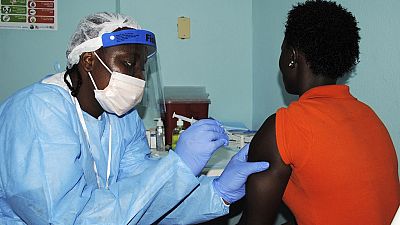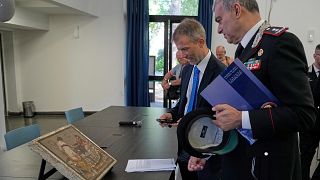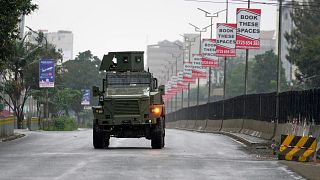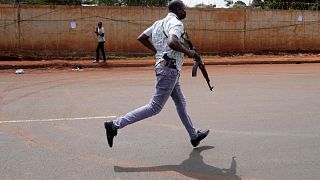Kenya
An Ebola clinical vaccine trial will be launched this July by the Kenya Medical Research Institute (KEMRI), the Standard Digital of Kenya reports.
According to Senior Deputy Director of the KEMRI Walter Reed project, Dr Fredric Sawe, the effort by KEMRI is meant to restore the West African region which was worst hit by the deadly Ebola virus.
“People were scared to travel to West Africa or to host passengers from that region. We now aim to put an end to that by launching a clinical trial of the vaccine,” he said.
Kemri to launch Ebola vaccine trial https://t.co/OOV5KSMsvf pic.twitter.com/qJXbbbxI3n
— The Standard Digital (@StandardKenya) May 23, 2016
He made the disclosure during the launch of Kericho HIV and Aids Strategic plan during the World Vaccine Day event held at Kericho Green Stadium. He added that for the last 15 years, the research institute had conducted two clinical trials for HIV vaccine, noting that the trials had demonstrated impressive response and safety.
“Nonetheless, we did not get enough response for public use but we are close to it. There is only one study in the whole world which was conducted by Walter Reed in Thailand, which demonstrated 31 per cent effectiveness,” he added.
He said KEMRI had analyzed the Thai study and were set to launch another HIV vaccine clinical trial in four months with another slated for next year.
“People don’t adhere to all the HIV prevention measures such as abstinence, faithfulness, male circumcision, HIV testing and counselling and retroviral treatment among other means and that is why a HIV vaccine is required,” Sawe noted.
The Ebola epidemic hit West African countries of Guinea, Sierra Leone and Liberia, killing lots of people and resulting in a shutdown of most communities. The World Health Organisation (WHO) says 3 countries remain at high risk of additional small outbreaks of Ebola, like the most recent one in Liberia. To date, 10 such flare-ups have been identified that were not part of the original outbreak, and are likely as a result of the virus persisting in survivors even after recovery.
WHO further says there is evidence that the virus disappears relatively quickly from survivors, but can remain in the semen of a small number of male survivors for as long as 1 year, and in rare instances, be transmitted to intimate partners.
International Medical Corps country director in Liberia, Anouk Boschma says although financial aid is given to many survivors, Liberia should prioritise widespread clinical care and mental health support.
Standard Digital of Kenya













01:01
Kenya: Visa-free travel now available for many African and Caribbean countries
00:22
Boniface Kariuki, a Kenyan mask vendor shot at close range laid to rest
11:17
Bridging the legal gap in Africa’s digital boom {Business Africa}
Go to video
First Malaria treatment for babies approved
02:16
Kenya's William Ruto faces growing discontent over economy and police brutality
01:52
Sean "Diddy" Combs will remain in jail until sentencing, bail denied